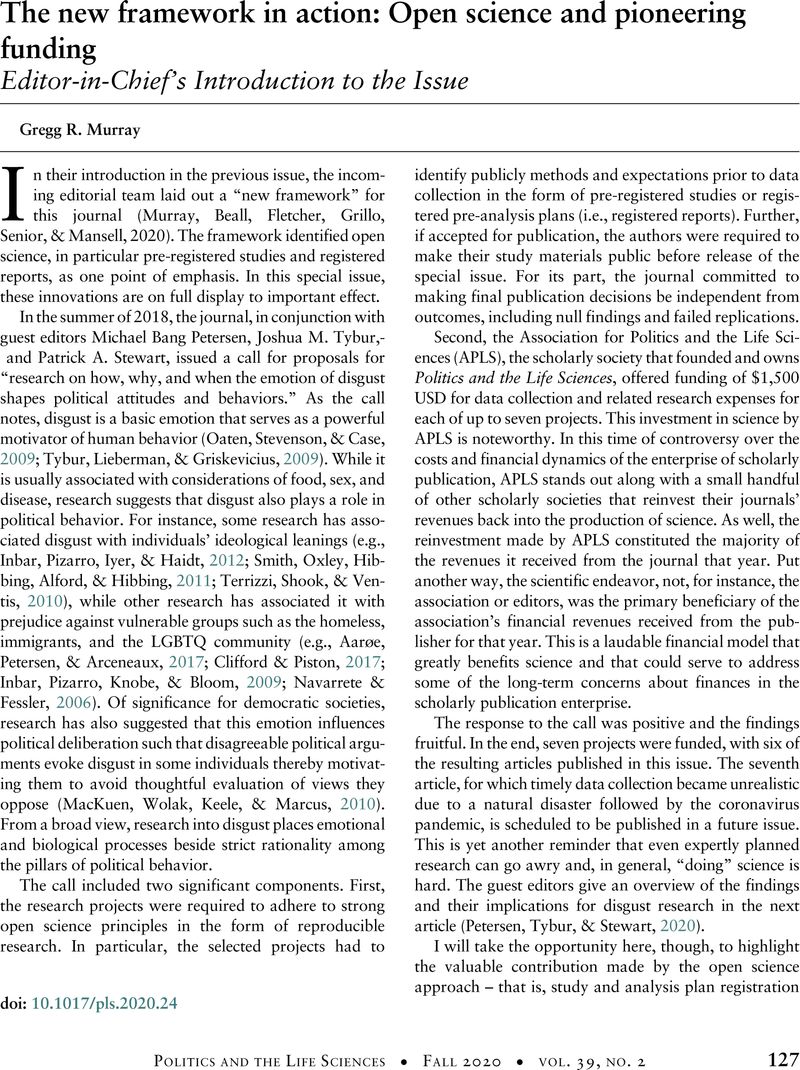Crossref Citations
This article has been cited by the following publications. This list is generated based on data provided by Crossref.
Clark, Robbie
Drax, Katie
Chambers, Christopher D.
Munafò, Marcus
and
Thompson, Jacqueline
2021.
Evaluating Registered Reports Funding Partnerships: a feasibility study.
Wellcome Open Research,
Vol. 6,
Issue. ,
p.
231.
Murray, Gregg R.
2021.
Editor-in-Chief’s introduction to the issue.
Politics and the Life Sciences,
Vol. 40,
Issue. 2,
p.
135.



